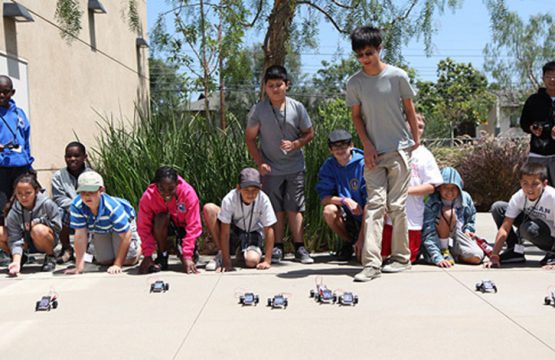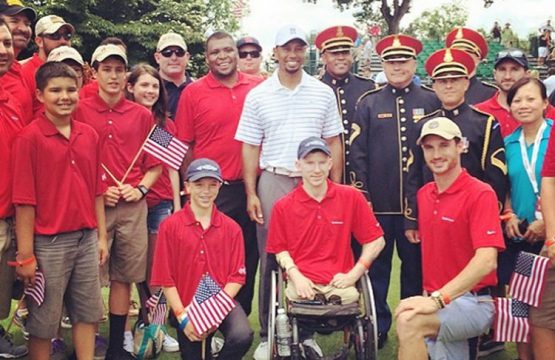Forbes: Tiger Woods on philanthropy
“Education is the key to breaking the cycle of poverty, and we see this every day in the work we do,” explained Tiger Woods in a brief interview about his philanthropic endeavors, ambitions and impact. We talked about the creation of his foundation nearly 20 years ago, what he’s most proud of, leadership lessons and more.
Woods is the founder of the Tiger Woods Foundation. A professional golfer on the PGA TOUR, he has 79 victories and 14 major wins.
Rahim Kanani: When the Tiger Woods Foundation was created in 1996, what was your original vision for the kind of work it would do?
Tiger Woods: At first, I was conducting junior golf clinics across the country in hopes of growing the game. After 9/11, I was driving home to Florida from St. Louis and I thought, ‘We need to be doing even more.’ I decided it was time to open a learning center that was not golf-focused, but to offer college-access programs and classes to underserved youth. We opened the first Tiger Woods Learning Center in 2006 in Anaheim, California, and from there it took off. Since then, we have opened six more learning centers in low-income areas, including one at the Marine Corps Base at Quantico near Washington, D.C.
My father was dedicated to mentoring me throughout my life and he had a wonderful impact on so many people. To honor him, we started the Earl Woods Scholarship Program, which provides scholarships to high-achieving students with financial need, who are dedicated to community service. We have served more than 100 scholars, and each of them is so impressive. Many of them are first in their family to go to college and go to prestigious universities nationwide like Harvard, Stanford, UCLA, USC and Georgetown. Our most recent class of scholars includes all first-generation students. Pretty amazing.
Kanani: Reflecting on nearly 20 years of the foundation’s work, what are you most proud of?
Woods: I’m proud that our work is making a real difference for our students. Education is the key to breaking the cycle of poverty, and we see this every day in the work we do. Almost 90 percent of our college scholars are first in their families to graduate, which is a game changer for those families. I’m very proud of that.
Kanani: With a focus on educational opportunities for youth, particularly from low-income areas, which areas do you currently serve, and are you thinking about expanding these geographies even further?
Woods: The foundation currently has learning centers for grades five through 12 in Anaheim, Washington, D.C., Philadelphia and Stuart, Florida. The Earl Woods Scholarship Program serves students in each of these areas, and we’ve recently added two scholars from the Bronx. We are always looking to expand the foundation’s reach, and we constantly strive to have a positive impact on more low-income students nationwide.
Kanani: What’s the most rewarding part about this work?
Woods: When my staff and I see these students go from our learning centers to college and from college to successful professionals in the workforce, we see our mission accomplished.
Kanani: What are some of the leadership lessons you’ve learned over the years as it relates to philanthropy and philanthropic work?
Woods: I’ve learned that the sky is the limit, and my staff continues to find creative ways to make our goals a reality. They’re the best in the business when it comes to philanthropic work, event planning and education. I’ve learned to trust them and know that they are the backbone of my foundation.
Reposted with permission from Forbes Magazine.


